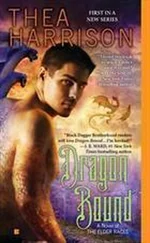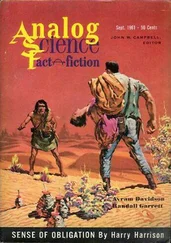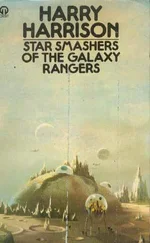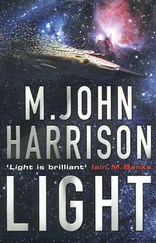M Harrison - Viriconium
Здесь есть возможность читать онлайн «M Harrison - Viriconium» весь текст электронной книги совершенно бесплатно (целиком полную версию без сокращений). В некоторых случаях можно слушать аудио, скачать через торрент в формате fb2 и присутствует краткое содержание. Жанр: Фэнтези, на английском языке. Описание произведения, (предисловие) а так же отзывы посетителей доступны на портале библиотеки ЛибКат.
- Название:Viriconium
- Автор:
- Жанр:
- Год:неизвестен
- ISBN:нет данных
- Рейтинг книги:3 / 5. Голосов: 1
-
Избранное:Добавить в избранное
- Отзывы:
-
Ваша оценка:
- 60
- 1
- 2
- 3
- 4
- 5
Viriconium: краткое содержание, описание и аннотация
Предлагаем к чтению аннотацию, описание, краткое содержание или предисловие (зависит от того, что написал сам автор книги «Viriconium»). Если вы не нашли необходимую информацию о книге — напишите в комментариях, мы постараемся отыскать её.
Viriconium — читать онлайн бесплатно полную книгу (весь текст) целиком
Ниже представлен текст книги, разбитый по страницам. Система сохранения места последней прочитанной страницы, позволяет с удобством читать онлайн бесплатно книгу «Viriconium», без необходимости каждый раз заново искать на чём Вы остановились. Поставьте закладку, и сможете в любой момент перейти на страницу, на которой закончили чтение.
Интервал:
Закладка:
A famous novel begins:
I went to Viriconium in a century which could find itself only in its own symbols, at an age when one seeks to unify one’s experience through the symbolicevents of the past.
I saw myself go on board an airliner, which presently rose into the air. Above the Atlantic was another sea, made of white clouds; the sun burned on it. The only thing we recognised in all that immense white space was the vapour trail of another airliner on a parallel course. It disappeared abruptly. We were encouraged to eat a meal, watch first one film and then another. The captain apologised for the adverse winds, the turbulence, of what had seemed to us to be a completely tranquil journey, as if apologising for a difficult transition from childhood to adolescence.
In Viriconium the light was like the light you only see on record covers and in the colour supplements. Photographic precision of outline under an empty blue sky is one of the most haunting features of the Viriconium landscape. Ordinary objects-a book, a bowl of anemones, someone’s hand-seem to be lit in a way which makes them very distinct from their background. The identity of things under this light seems enhanced. Their visual distinctness becomes metonymic of the reality we perceive both in them and in ourselves.
I began living in one of the tall grey houses that line the heights above Mynned.
You can’t just fly there, of course.
Soon after my trip to York I got a job in a tourist cafe in the town. It was called the Gate House, and it was attached to a bookshop. The idea was that you could go in, look round the shelves, and leaf through a book while you drank your coffee. We had five or six tables with blue cloths on them, a limited menu of homemade pastries, and pictures by local artists on the walls. Crammed in on the wooden chairs on a wet afternoon, thirteen customers seemed to fill it to capacity; damp thickened in the corner by the coats. But it was often empty.
One day a man and a woman came in and sat down near one another but at separate tables. They stared at everything as if it was new to them.
The man wore a short zip-fronted gabardine jacket over his green knitted pullover and pink shirt; a brown trilby hat made his head seem small and his chin very pointed. His face had an old but unaged quality-the skin was smooth and brown, streaked, you saw suddenly, with dirt-which gave him the look of a little boy who had grown haggard round the eyes after an illness. He might have been anywhere between thirty and sixty. He looked too old for one and too young for the other: something had gone wrong with him. His eyes moved sorely from object to object in the room, as if he had never seen a calendar with a picture of Halifax town centre on it, or a chair or a plate before; as if he was continually surprised to find himself where he was.
I imagined he had come up for the day from one of the farms south of Buxton, where the wind sweeps across the North Staffordshire Plain and they sit in their old clothes all week in front of a broken television, listening to the gates banging.
He leaned over to the other table.
“Isn’t it Friday tomorrow?” he said softly.
“You what?” answered the woman. “Oh, aye, Friday defnitely. Oh, aye.” And when he added something in a voice too low for me to catch: “No, theer’s no fruit cake, no, they won’t have that here. No fruit cake, they won’t have that.”
She dabbed her finger at him. “Oh, no, not here.”
Tilting her head to one side and holding her spoon deftly at an angle so that she could see into the bottom of her coffee cup, she scooped the half-melted sugar out of it. While she was doing this she glanced round at the other customers with a kind of nervous satisfaction, like an Eskimo or an Aborigine in some old TV documentary-the shy, sharp glance which tells you they are getting away, in plain view, with something that is unacceptable in their own culture. It was done in no time, with quick little licks and laps. When she had finished she sat back. “I’ll wait till teatime for another,” she said. “I’ll wait.” She had cunningly kept on her yellow-and-black-check overcoat, her red woollen hat.
“Will you have a cup of coffee now?” she asked. And seeing that he was gazing in his sore vague way at the landscapes on the walls, “Theer watercolours those, on the wall, I’d have to look to be certain: watercolours those, nice.”
“I don’t want any coffee.”
“Will you have ice cream?”
“I don’t want any ice cream, thank you. It cools my stomach.”
“You’ll be better when you get back up there, you’ll get television on. Get sat down in front of that.”
“Why should I want to watch the television?” he said quietly, looking away from a picture of the town bridge in the rain. “I don’t want any tea or supper, or any breakfast in the morning.”
He put his hands together for a moment and stared into the air with his solemn boyish eyes in his delicately boned dirty face. He fumbled suddenly in his pockets.
“You can’t smoke in here,” said the woman quickly. “I don’t think you can smoke in here; I thought I saw a sign which said no smoking because there’s food about, you see, oh, no: they won’t have that in here.”
When they got up to pay me he said,
“Nice to have a change.” His voice was intelligent, but soft and clouded, like the voice of an invalid who wakes up disoriented in the afternoon and asks a new nurse the time. “It’s a day out, isn’t it?” They had come over by bus from a suburb the other side of Huddersfield which he called Lock Wood or Long Wood. “Nice to have a change,” he repeated, “while the weather’s still good.” And before I could reply: “I’ve got a cold, you see, really it’s bronchial pneumonia, more like bronchial pneumonia. I’ve had it for a year. A year now or more: they can’t help you at these Health Centres, can they? My lungs seem inside out with it on a wet day-”
“Now get on,” the woman interrupted him.
Though his voice was so low they could have heard nothing, she grinned and bobbed at the other customers as if to apologise for him.
“None of that,” she said loudly to them.
She pushed him towards the door. “I’m not his wife, you know,” she said over her shoulder to me, “oh, no, more his nurse-companion, I’ve managed for two years. He’s got money but I don’t think I could marry him.”
She was like a budgerigar bobbing and shrugging in front of the mirror in its cage.
I looked out of the window half an hour later and they were still standing at the bus stop. Nothing could ever come of them. The meaning of what they said to one another was carefully hidden in its own broken, insinuatory rhythms. Their lives were so intricately repressed that every word was like a loose fibre woven back immediately into an old knot. Eventually a bus arrived. When it pulled away again he was in one of the front seats on the top deck, looking down vaguely into the florist’s window, while she sat some rows back on the other side of the aisle, wincing if he lit a cigarette and trying to draw his attention to something on part of the pavement he couldn’t possibly see from where he was.
When I told Mr. Ambrayses about them he was excited.
“That man, did he have a tiny scar? Beneath the hairline on the left side? Like a crescent, just visible beneath the hair?”
“How could I know that, Mr. Ambrayses?”
“Never mind,” he said. “That man’s name is Doctor Petromax, and he once had tremendous power. He used it cleverly and soon stood the thickness of a mirror from what we all seek. But his nerve failed: what you see now is a ruin. He found an entrance to Viriconium in the lavatory of a restaurant in Huddersfield. There were imitation quarry tiles on the floor, and white porcelain tiles on the walls around the mirror. The mirror itself was so clean it seemed to show the way into another, more accurate version of the world. He knew by its cleanliness he was looking into one of the lavatories of Viriconium. He stared at himself staring out; and he has been staring at himself ever since. His courage would take him no further. What you see is a shell; we can learn nothing from him now.”
Читать дальшеИнтервал:
Закладка:
Похожие книги на «Viriconium»
Представляем Вашему вниманию похожие книги на «Viriconium» списком для выбора. Мы отобрали схожую по названию и смыслу литературу в надежде предоставить читателям больше вариантов отыскать новые, интересные, ещё непрочитанные произведения.
Обсуждение, отзывы о книге «Viriconium» и просто собственные мнения читателей. Оставьте ваши комментарии, напишите, что Вы думаете о произведении, его смысле или главных героях. Укажите что конкретно понравилось, а что нет, и почему Вы так считаете.











